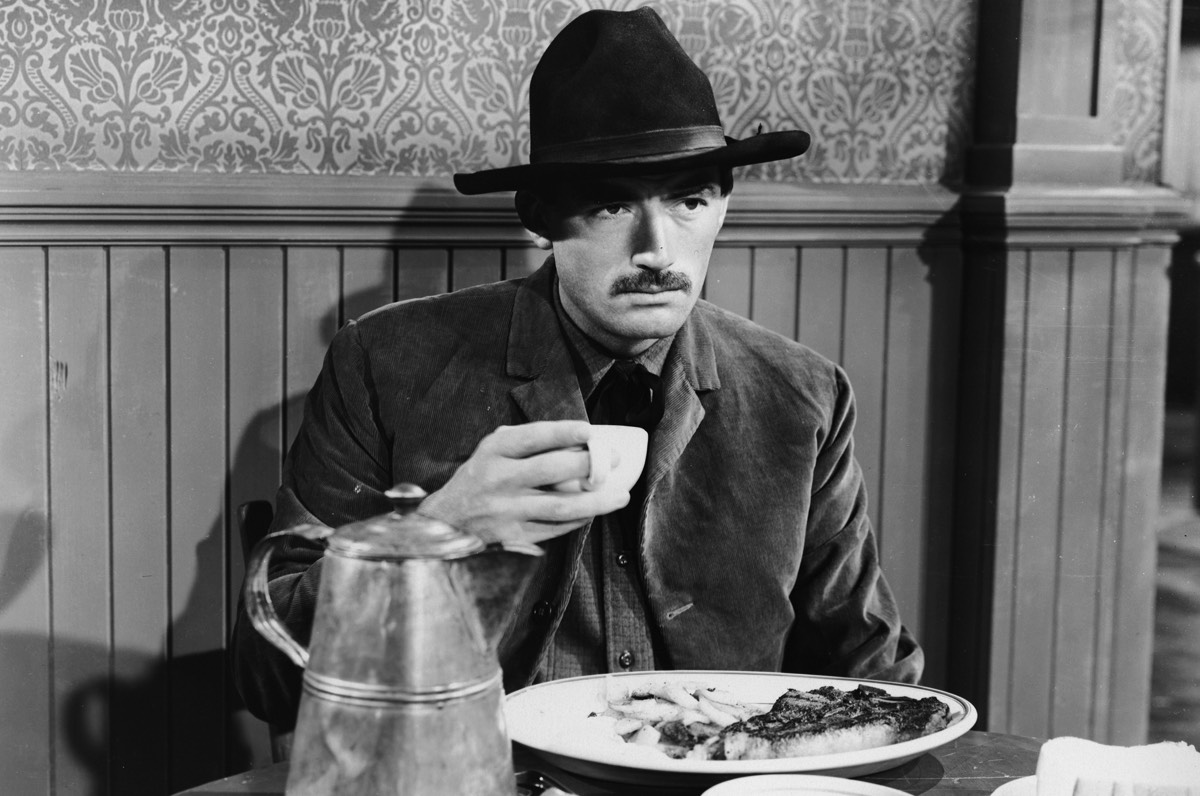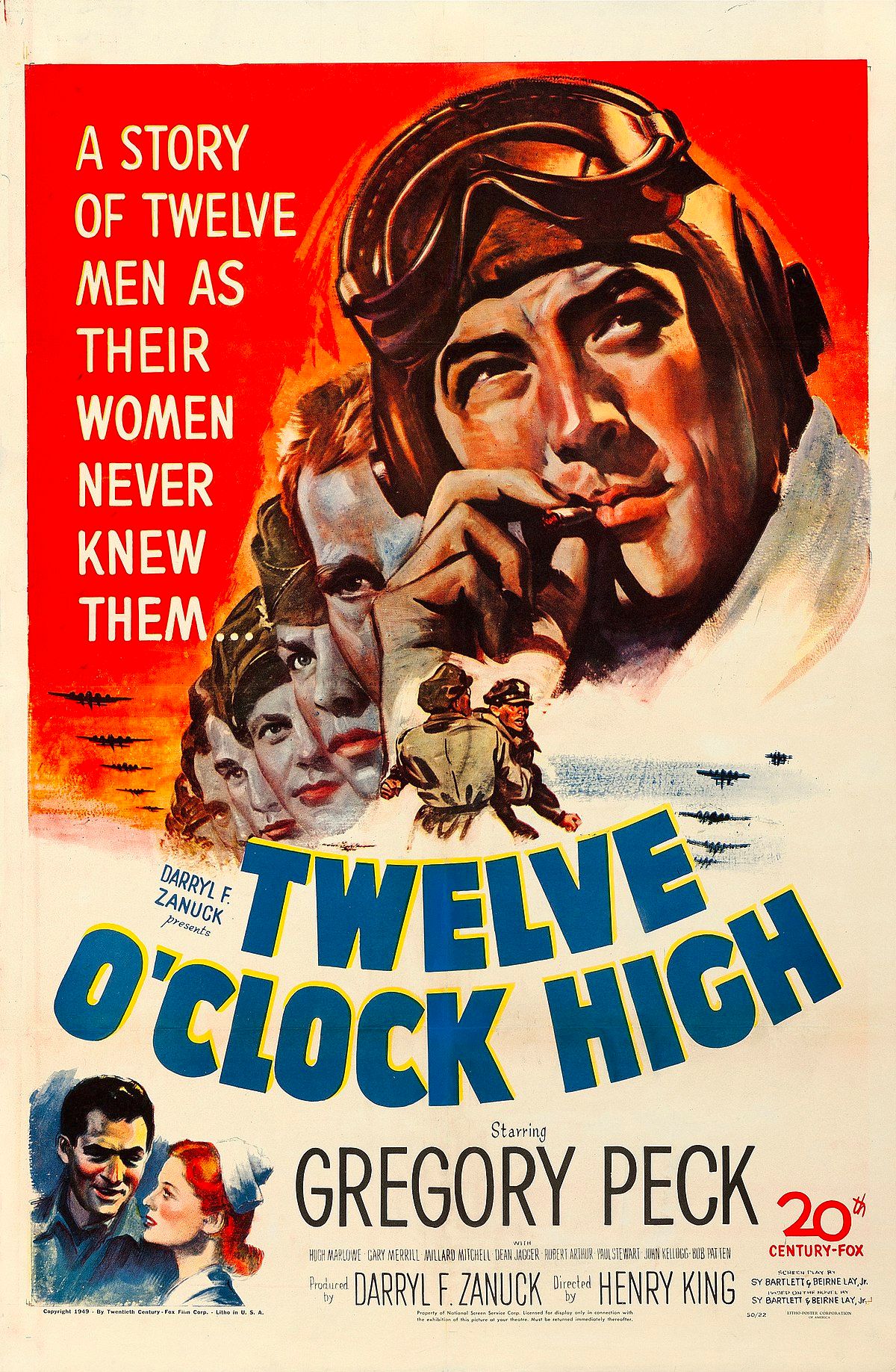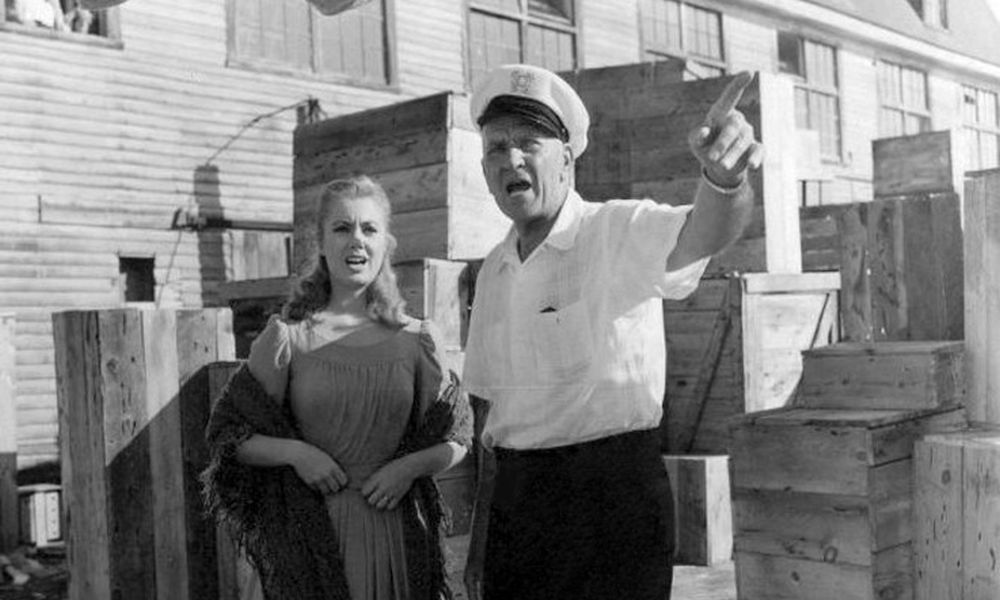“Skillful, commercially successful director whose list of credits includes many of the most highly respected and popular movies of the 1920s, 1930s, 1940s, and beyond… Never an individualist, or a visual stylist, King was one of those craftsmen who thrived under the studio system, and made an impressive number of good, solid films.” - Leonard Maltin's Movie Encyclopedia, 1995
Henry King
Director / Producer
(1886-1982) Born January 24, Christiansburg, Virginia, USA
(1886-1982) Born January 24, Christiansburg, Virginia, USA
Key Production Country: USA
Key Genres: Drama, Romance, Biopic, Melodrama, Historical Film, Western, Adventure, Musical, Period Film, Psychological Western, Outlaw (Gunfighter) Film, Romantic Drama
Key Collaborators: Barbara McLean (Editor), Alfred Newman (Composer), Lyle Wheeler (Production Designer), Leon Shamroy (Cinematographer), Darryl F. Zanuck (Producer), Tyrone Power (Leading Actor), Gregory Peck (Leading Actor), William Darling (Production Designer), Lamar Trotti (Screenwriter), George Barnes (Cinematographer), Maurice Ransford (Production Designer), Ronald Colman (Leading Actor)
Key Genres: Drama, Romance, Biopic, Melodrama, Historical Film, Western, Adventure, Musical, Period Film, Psychological Western, Outlaw (Gunfighter) Film, Romantic Drama
Key Collaborators: Barbara McLean (Editor), Alfred Newman (Composer), Lyle Wheeler (Production Designer), Leon Shamroy (Cinematographer), Darryl F. Zanuck (Producer), Tyrone Power (Leading Actor), Gregory Peck (Leading Actor), William Darling (Production Designer), Lamar Trotti (Screenwriter), George Barnes (Cinematographer), Maurice Ransford (Production Designer), Ronald Colman (Leading Actor)
"Henry King worked across a range of genres, from dramas to Westerns and action movies… Although always totally professional, Henry King never had a really identifiable style or theme as a director; his films, however, were consistently well made and entertaining." - Edward Buscombe (501 Movie Directors, 2007)
"Stella Dallas, The Winning of Barbara Worth, State Fair, In Old Chicago, The Song of Bernadette, Margie, Twelve O’Clock High, and even Love is a Many Splendored Thing and The Bravados are likable enough in their plodding intensity, but not quite forceful enough to compensate for the endless footage of studio-commissioned slop which King could never convert into anything personal or even entertaining. The one film for which he will probably be remembered longest is The Gunfighter, the most charming of the handle-bar-mustache anti-Westerns. But even at his best, King tended to be turgid and rhetorical in his storytelling style.” - Andrew Sarris (The American Cinema, 1968)

The Gunfighter (1950)
"An extraordinarily versatile studio director of the old school, King spent forty-six years in the business starting with Who Pays (1916) and ending with Tender is the Night (1962). In between, he entertained untold millions with such high-quality and intelligently thought-out star vehicles as Tol’able David (1921), State Fair (1933), the exquisitely photographed Jesse James (1939), and the excellent, and still underrated The Sun Also Rises (1958). King loved America, and his best films are imbued with a sense of its possibilities, thus making him a rare optimist in a film world populated largely by would-be cynics." - Mario Reading (The Movie Companion, 2006)
"All in all King’s oeuvre was exceptionally bountiful even on a Hollywood scale. Quantity tended to replace quality especially at the beginning and end of his career. Early routine works were dominated by a touchingly naïve sense of American happiness: illusions, but also wishes fulfilled. In the last works we find aching testimonies of human frailty, failure and the proximity of death. Looking closer at the clusters of failed movies we can perceive interconnected syntheses and thematic arches, not so much between works but between images that enter into dialogue even when there are as many as six quickly manufactured films in between. Often in the background of such connections one can detect the director’s affinity for subjects important to him." - Peter von Bagh (2013)
"One of the most solid and dependable of American directors, Henry King first broke into films in 1912 and enjoyed a rich and varied career spanning fifty years, over thirty of them spent at one studio, Fox (later 20th Century-Fox)… A fine and sympathetic director of actors, he worked with Janet Gaynor and Will Rogers, the studio’s two leading stars during the early 30s, Alice Faye and Jennifer Jones a few years later, Gregory Peck and Susan Hayward in the 50s. But his longest and closest working relationship was with Tyrone Power. They made eleven films together over twenty or so years." - Joel W. Finler (The Movie Directors Story, 1985)
"His style, essentially that of a storyteller, has been described as direct and unobtrusive, though each of his pictures bears the stamp of his own pace--partly because King has always stressed the importance of editing. The great Russian director Pudovkin long ago pointed out the excellence of King's montage work in Tol'able David from 1921." - The Museum of Modern Art, 1978
"Traditionalist American director whose distinguished career during the silent 1920s has earned him the respect of many younger film-makers. His later work, with Twentieth Century Fox, during the 1930s, 40s and 50s has been mostly conventional family entertainment, though his range of subject matter is remarkable by any standards… Within the Fox set-up, he produced a perpetual stream of formula films, using the same contract stars (Tyrone and Power and Gregory Peck, among them) and often adding a zest and subtlety that went beyond the rigid limitations of the plot." - Margaret Hinxman (The International Encyclopedia of Film, 1972)
"King was the most important contract-director at Fox (later 20th Century-Fox) during his tenure of over thirty years there. He had a string of hits, including State Fair, Alexander’s Ragtime Band, A Bell for Adano and The Song of Bernadette. He worked in many genres - musicals, Westerns, war films, small-town Americana, literary adaptations - and turned out excellent work in them all." - The Illustrated Who's Who of the Cinema, 1983
Selected Filmography
{{row.titlelong}}
Henry King / Fan Club
José Luis Guarner, Jesús Cortés, Sara García, D.W. Griffith, Martin Scorsese, Patrick Brion, Ehsan Khushbakht, John Ford, Daniel Kothenschulte, Monte Hellman, Bertrand Tavernier, Paul Simpson.
José Luis Guarner, Jesús Cortés, Sara García, D.W. Griffith, Martin Scorsese, Patrick Brion, Ehsan Khushbakht, John Ford, Daniel Kothenschulte, Monte Hellman, Bertrand Tavernier, Paul Simpson.
"Fan Club"
These film critics/filmmakers have, on multiple occasions, selected this director’s work within film ballots/lists that they have submitted.
These film critics/filmmakers have, on multiple occasions, selected this director’s work within film ballots/lists that they have submitted.


